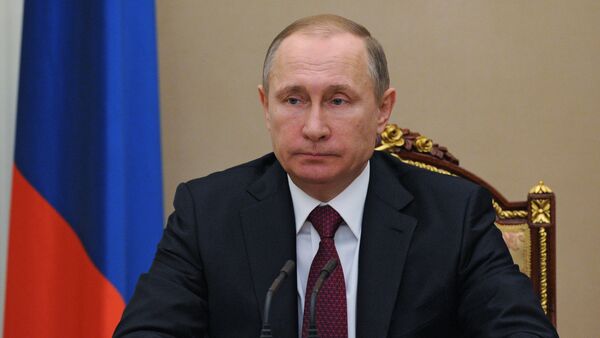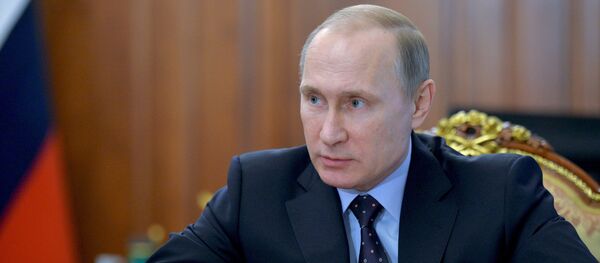MOSCOW (Sputnik) – In his 2007 speech at the Munich Security Conference (MSC), Putin decried unipolarity of international affairs, created by the United States, and accused Washington of provoking a new nuclear arms race, expanding NATO in Europe, using force unilaterally and making the Middle East more unstable, which leads to the growth of extremism.
As relations between Russia and the West have a cyclical nature and have now become more strained, Munich conference this year, taking place on February 12-14 may see a remarkable Russian address again.
"All post-Soviet Russian leaders have begun their tenure hoping for close cooperation with the West, then become disillusioned. This applies equally to Gorbachev, to Yeltsin, and to Putin," Keir Giles, the Director of the Conflict Studies Research Center think tank, wrote in a paper obtained by Sputnik.
The expert called it "the cyclical nature of relations between Russia and the West, where high intentions founder on incompatible strategic priorities, a confrontation ensues, followed by a reset."
Back in 2007, Putin expressed Russia’s disturbance with the expansion of NATO’s ballistic missile defense system into Europe. Since then, there have been no major changes.
"The balance of terror between the great powers remains in place, and on the whole the case can be made that anti-ballistic missile systems should be stabilizing rather than destabilizing. Unfortunately, the proposed systems in Eastern Europe have for political — not strategic — reasons — become a point of contention between the US and Russia, which is most unfortunate," Thomas Berger, professor of International Relations at Boston University and author of a number of books on security matters, told Sputnik.
Back in 2007, "in the West, if the message was received at all, it was not understood. Russian security thinking was widely ignored by the West while Russia was weak and could easily be overlooked except as a potential source of dangerous instability itself in the event of state collapse," Berger said.
Now, instead, there is a growing understanding that Putin was right in many of his predictions and that major regional and trans-regional crises cannot be resolved without a close cooperation between the global powers.
A bright example of Putin’s prophesy of 2007 is the rise of extremism in the Middle East. Almost ten years ago he said that the increasing social tension in depressed regions inevitably resulted in the growth of radicalism, extremism, feeds terrorism and local conflicts. If this happens in the Middle East, then there is the risk of global destabilization, he said.
"Putin was correct in his analysis — a sense of rage fed by the belief that the world is unfair, especially to Muslims, has helped destabilize the Middle East. The problem is, is there any way that international community can make the world seem more just in the eyes of the millions of alienated young men in that region?" Breger said.
Today, Syria and fight against terrorism and extremism is a number one topic at MSC and the main security problem for the whole world. The only way for the US, Russia and other stakeholders to address it is to forget about differences and work out a joint, consistent approach.
Russia’s Official delegation at this year’s MSC is headed by Prime Minister Dmitry Medvedev.


